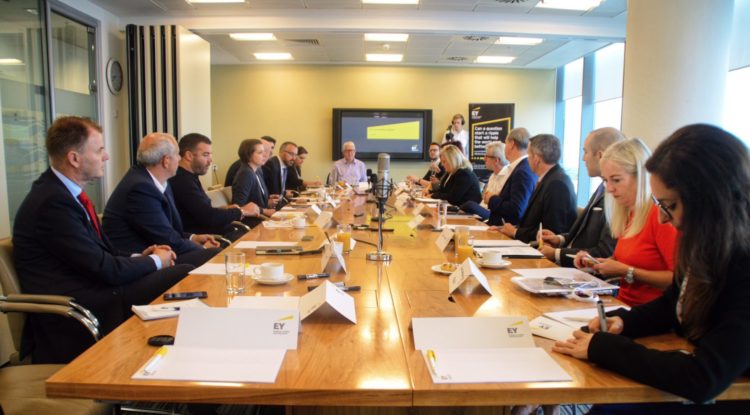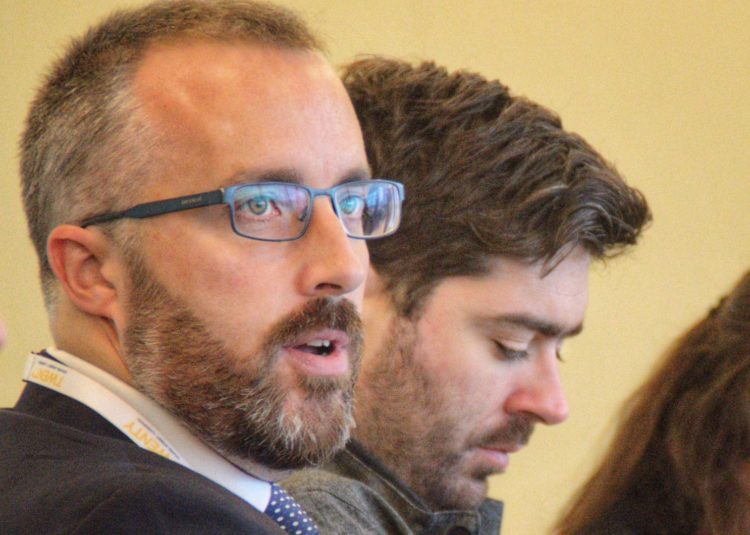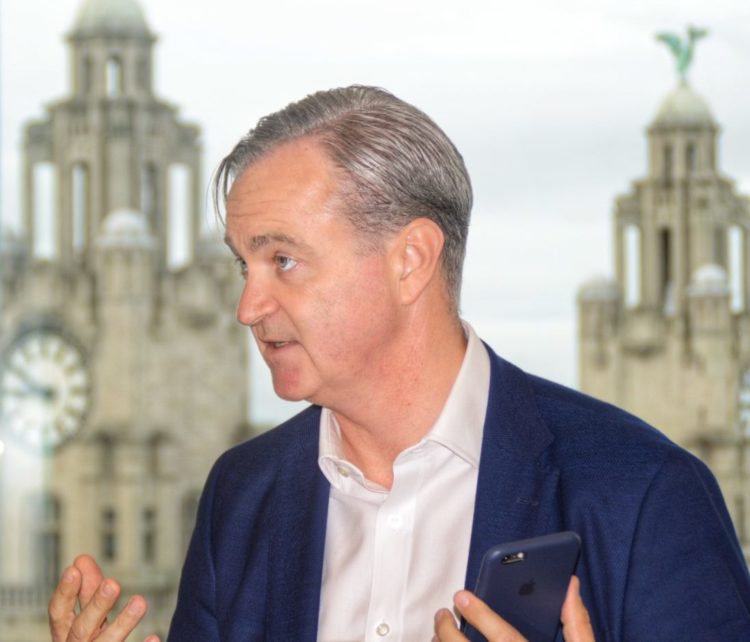Northern towns and cities ‘face decline’ if they don’t fully embrace digital technology
Event in Liverpool hosted by accountancy firm EY hears how the public and private sectors in the Northern Powerhouse needed to up their game to benefit from rapid technological change. Tony McDonough reports

Towns and cities across the North of England risk being left behind as digital technology sparks the biggest economic transformation since the industrial revolution.
That was the stark warning to business leaders in Liverpool at an event to discuss how digital technology can foster a new era of collaboration among businesses and local authorities across the Northern Powerhouse, from Merseyside to Tyneside.
Accountancy firm EY hosted the round table discussion at its Liverpool headquarters in 20 Chapel Street. Similar sessions were held in its offices in Manchester, Leeds and Newcastle on the same day.
Stark warning
Among those round the table were accountants, bankers, entrepreneurs, leaders of businesses and representatives from higher education.
They heard from Daniel Cochlin, head of external affairs for the Northern Powerhouse Partnership, who told them: “The warning is quite stark – if we don’t embrace digital technology then we will fail to reverse the decline in many Northern towns and cities. The next generation is counting on us to be leaders not followers.”
Mr Cochlin said digital technology deserved special status in the economic landscape because it is an “enabler that cuts across all sectors”.
Trust our entrepreneurs to drive future growth, says enterprise expert – click to read more
He added it was vital that businesses and local authorities across the North of England took full advantage of new innovations such as the forthcoming rollout of 5g technology which will turbo-charge the our connectivity and allowing much faster transfer of data.
“In terms of the rollout of 5g, we need to create a virtual network across Northern cities that is collaborative rather than competitive,” he explained. “It is about collaboration. Businesses and local authorities working together for the Northern Powerhouse.

“One of the biggest challenges is around skills. We really need to develop our own skilled workforce. We want to create 10,000 digital apprenticeships by 2020.
“And we need to make sure the digital sector is more gender-balanced. At the the moment it is male-dominated with the ratio being around 80/20. We need to get it closer to 50/50.”
Collaborative approach
EY partner Stephen Church, who chaired the Liverpool discussion, also warned the North could be left behind if it didn’t adopt a more collaborative approach. He cited the £75m recently awarded to the West Midlands to test 5g in its region as an example the North needed to take notice of.
He said: “Disruption is all around us and the pace of technological change is accelerating. How we work and how we play is changing fast. It is a fantastic opportunity but we have not yet harnessed it.
“The West Midlands secured significant funds from the Government to improve and upgrade its digital infrastructure. In that region they put in a single request to Government while the North put in 30 or 40 requests.
“It looked like they were co-ordinated and we were not. We need to speak with one voice.”

Genuine appetite
A banking professional who deals with business customers on a daily basis told the room there was a genuine appetite among companies of all shapes and sizes to explore how they could use digital technology to improve productivity and increase revenues.
He explained: “We have a number of clients in what you might call more traditional industries who say to us they have heard all the noise around technology and they would like to find out how it could help them become more efficient.
“Some of them are 100-year-old businesses. The biggest challenge is identifying the people, the time and the resources to be able to make these changes. We have excellent examples of those who have done it and we have examples of those who have not done it and are suffering as a result.”
A digital professional in the session added that he was approached by companies who were keen to utilise technology such as artificial intelligence (AI), “but had no idea how to apply it to their businesses”.
Job losses
Those around the table agreed that it was the smaller firms who would require more external assistance to take advantage of technological innovation as they lacked the time and the budgets of larger firms.
One entrepreneur addressed the fear that AI would lead to jobs losses across industry. He said: “People think that AI is going to destroy jobs but that is incorrect – the opposite is true. There are companies here locally who recognise this and they are creating new jobs.”
A number of people at the session also put forward the view that further and higher education institutions also needed to do more. One said that in Germany, where he had lived for two years, the co-operation between education and industry was much better than in the UK.
“In colleges over there young people have full access to the latest technology and are given the opportunity to become comfortable using it. We need to strengthen the link between business and academia,” he said.

Ivory towers
A university representative at the table insisted there had been a major improvement in the links between higher education institutions and industry over the past decade, saying: “Sometimes universities and businesses do speak a different language – but academics are coming out of their ivory towers and the culture of universities is changing.”
There was agreement that education needed less focus pure academic study with one contributor saying that students on some university courses were spending just six hours a week in lectures and very little time in real businesses.
Mr Cochlin said key to addressing the technological skills gap was to encourage more degree apprenticeships. He said: “We need to embrace degree apprenticeships as the way forward.”
There was also concern that, despite the success of the creative and digital cluster in the Baltic Triangle, Liverpool was still struggling to carve out a clear niche in the digital landscape.
One entrepreneur said: “Baltic has been great but it is more of an incubator environment for tech. Otherwise, the technology sector in Liverpool is very fragmented.”

